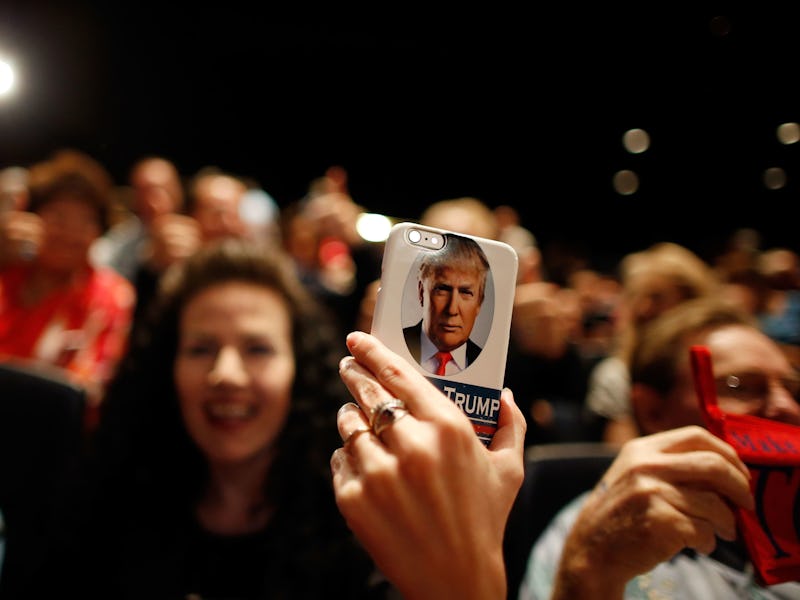
Donald Trump didn’t spend a lot of time discussing technology during his presidential campaign. Now that he’s been elected President of the United States, though, it’s worth thinking about how Trump’s administration could affect the devices many people use every day.
So what might Trump and the people likely to inform his technology polices have planned for your smartphone? Here are the six changes you’re most likely to notice — assuming the Trump administration can find a way to make them happen, or even to agree on the proper course of action for critical issues like the public’s right to privacy and the federal government’s continued war on encryption.
Your communications might be spied on…
Trump has said multiple times that he wants to increase surveillance of mosques and would support renewing the Patriot Act to allow intelligence agencies to collect metadata from telecommunications companies about their customers’ phone activities.
GONNA EAT YOUR PHONE
… or they might be safer than ever
Yet during a debate, Trump said that the “United States government should not spy on its own citizens” and that such surveillance “will not happen in a Trump administration.” It’s not clear where he stands on spying — which means you should probably try to protect yourself just in case.
I will do great things to your phone. Big things. Some things. Probably.
Mobile data could get more expensive
Trump isn’t a fan of net neutrality, the principle that prevents companies from charging their customers more for access to specific websites or services. If his administration tries to undo the Federal Communications Commission’s rules preventing internet service providers from violating this principle, Trump’s presidency could result in you paying more than you already do for mobile data.
Dear Steve, I wish you were here right now, some crazy shit is going on in Washington.
Your phone could be made less secure…
When Apple decided not to help the FBI access an iPhone used by one of the San Bernardino shooters, Trump called on the country to boycott the company until it changed its mind. Depending on where he lands on the surveillance issue, which could go either way, Trump might also try to make tech companies “backdoor” their products’ security features for easy snooping.
Success! This phone is clearly a winner.
… or more secure than it is right now
But things aren’t so cut-and-dry. In An American Strategy for Cyberspace, Trump’s tech policy adviser and frontrunner for FCC chairman, Jeffrey Eisenach, and his co-authors argued that the U.S. government should not try to force tech companies to undermine their encryption. This makes it even harder to predict what stance Trump’s administration might take on cybersecurity, but it seems likely that something will change, for the better or for the worse.
Who the hell knows what this guy is gonna do at this point.
Companies might have more leeway than ever
Speaking of Eisenach: Trump’s adviser has made it clear that he wants the FCC to stop meddling with private companies. Combine that with the GOP’s request for FCC chairman Tom Wheeler to essentially stop what he’s doing, and Trump’s presidency is likely to slip the leash off the telecoms industry. This could lead to big mergers, hiked prices, or any number of other issues posed by wide-scale deregulation.
Altogether, we really don’t know what kind of changes Trump will bring to the smartphone industry. His positions on the issues are, to put it mildly, wildly inconsistent, and we’ll all have to wait and see what happens when he takes office.